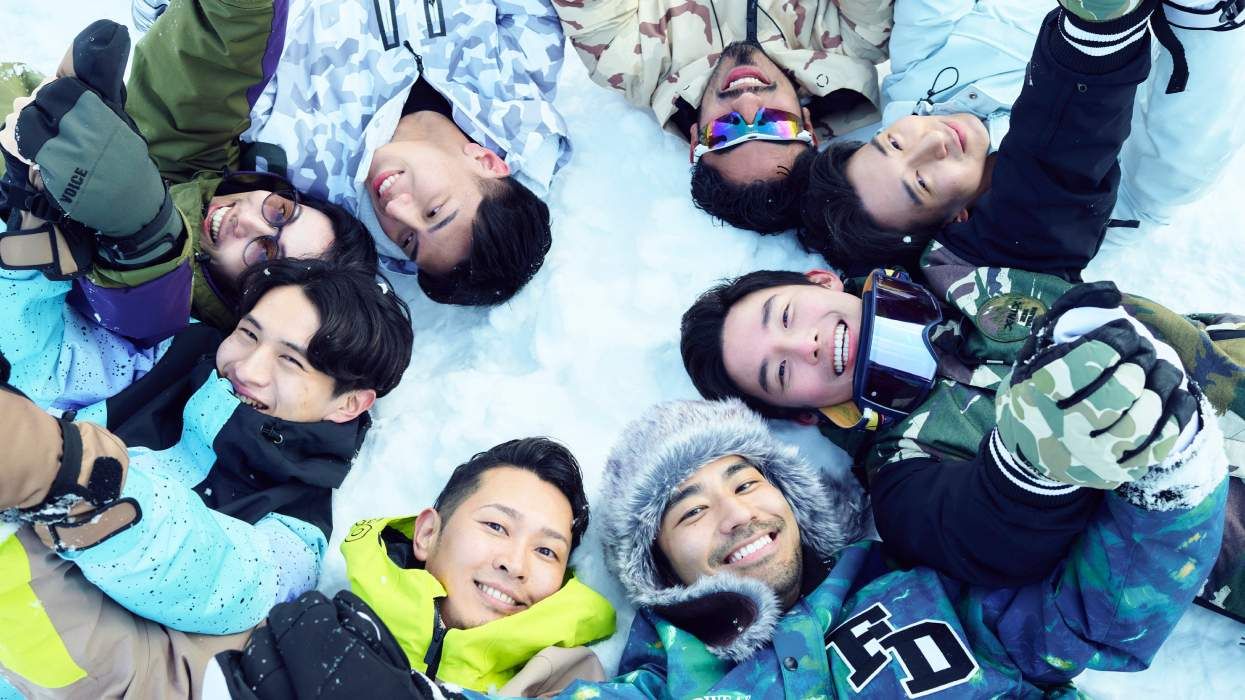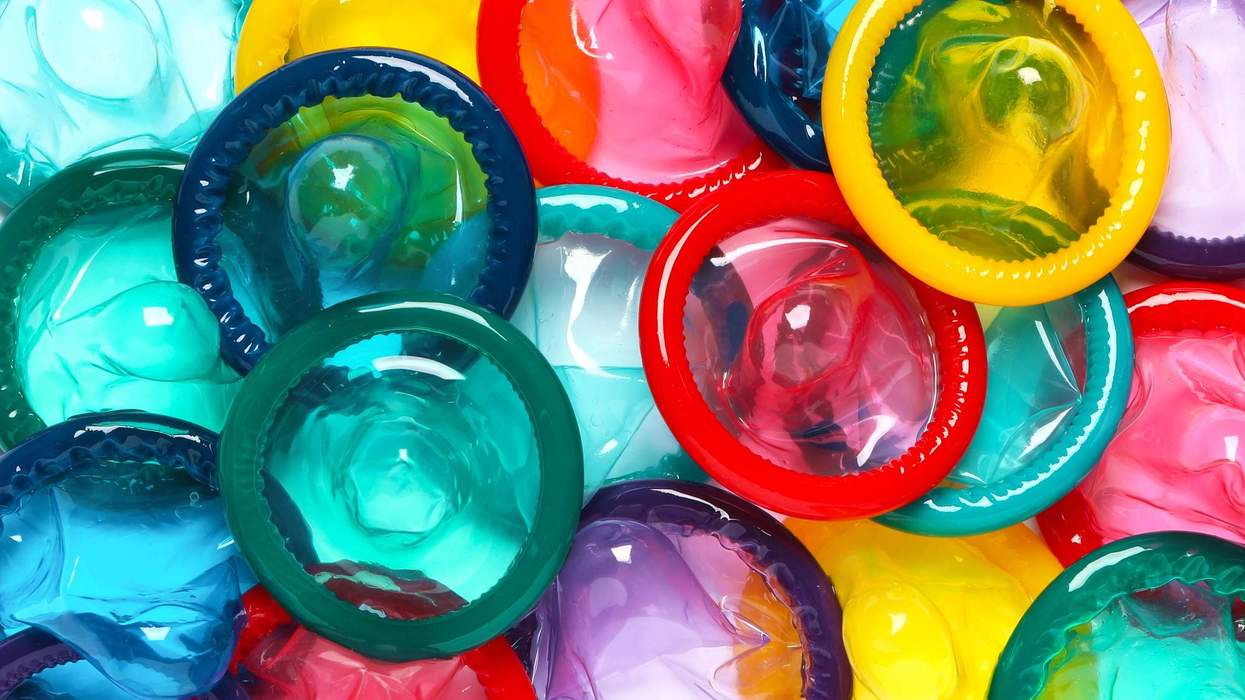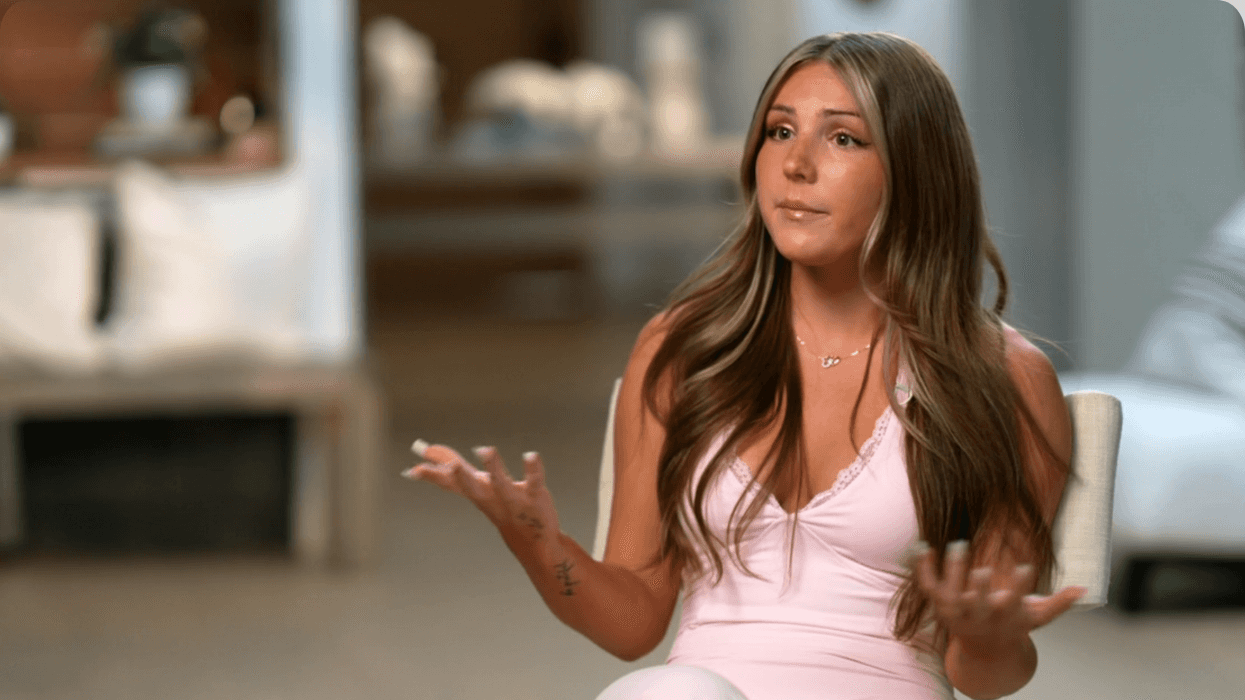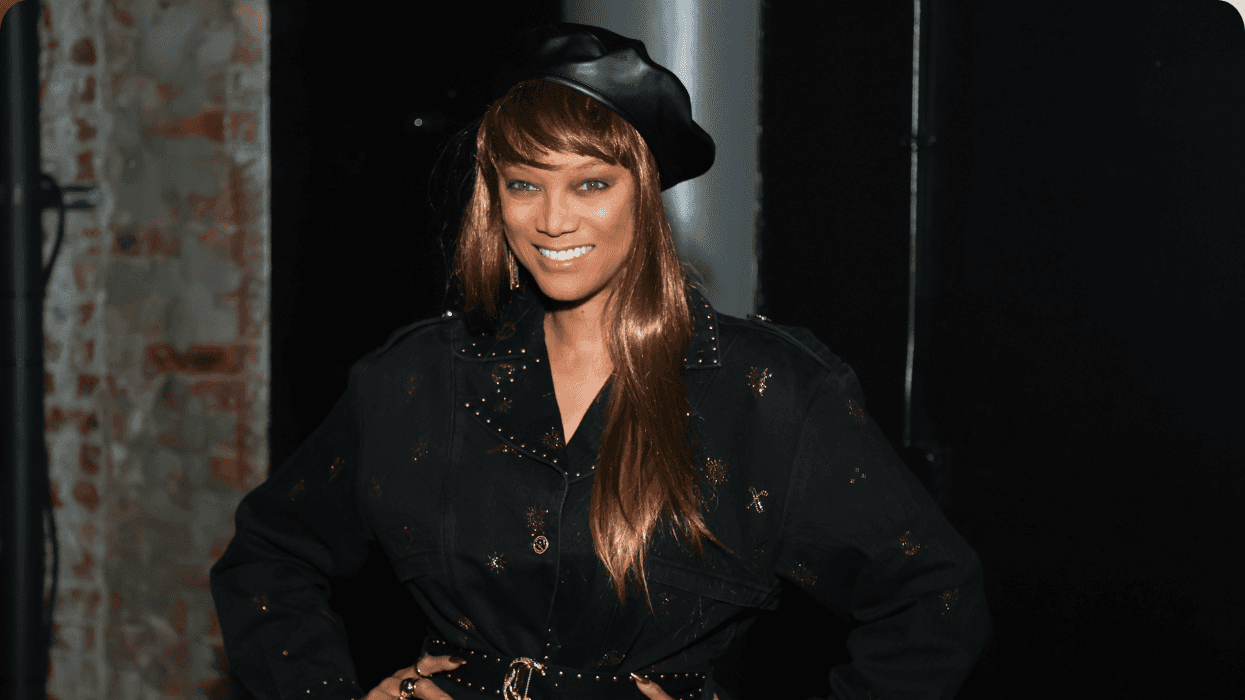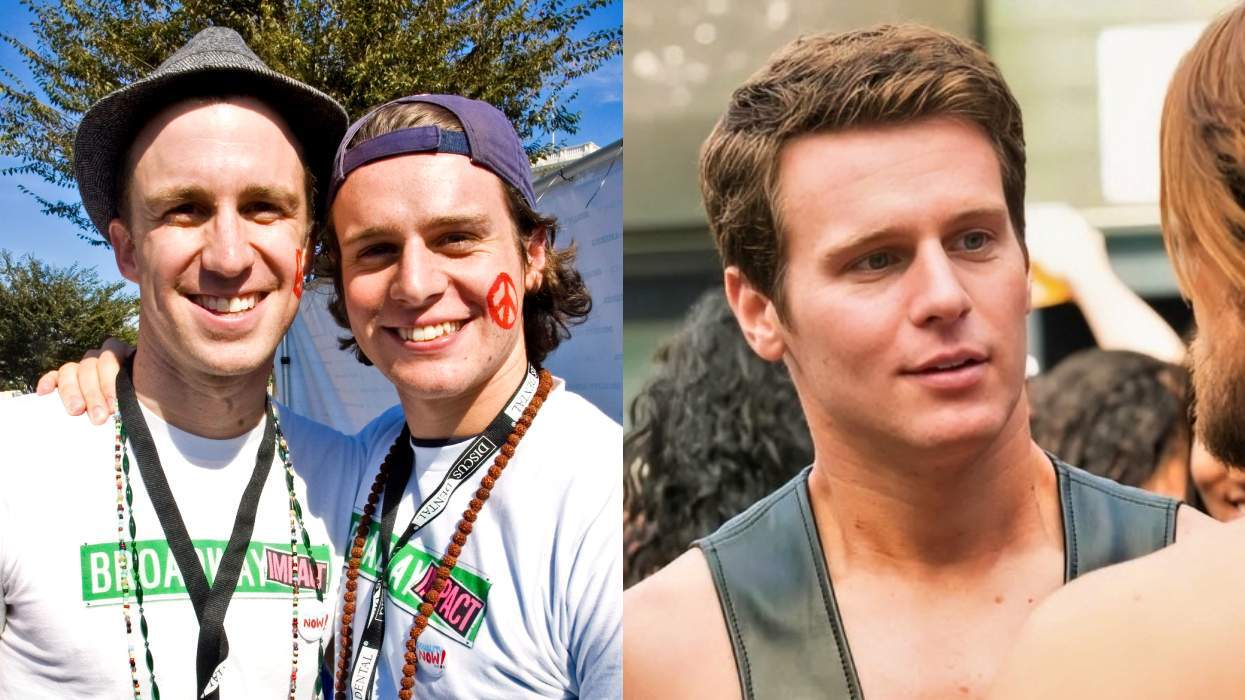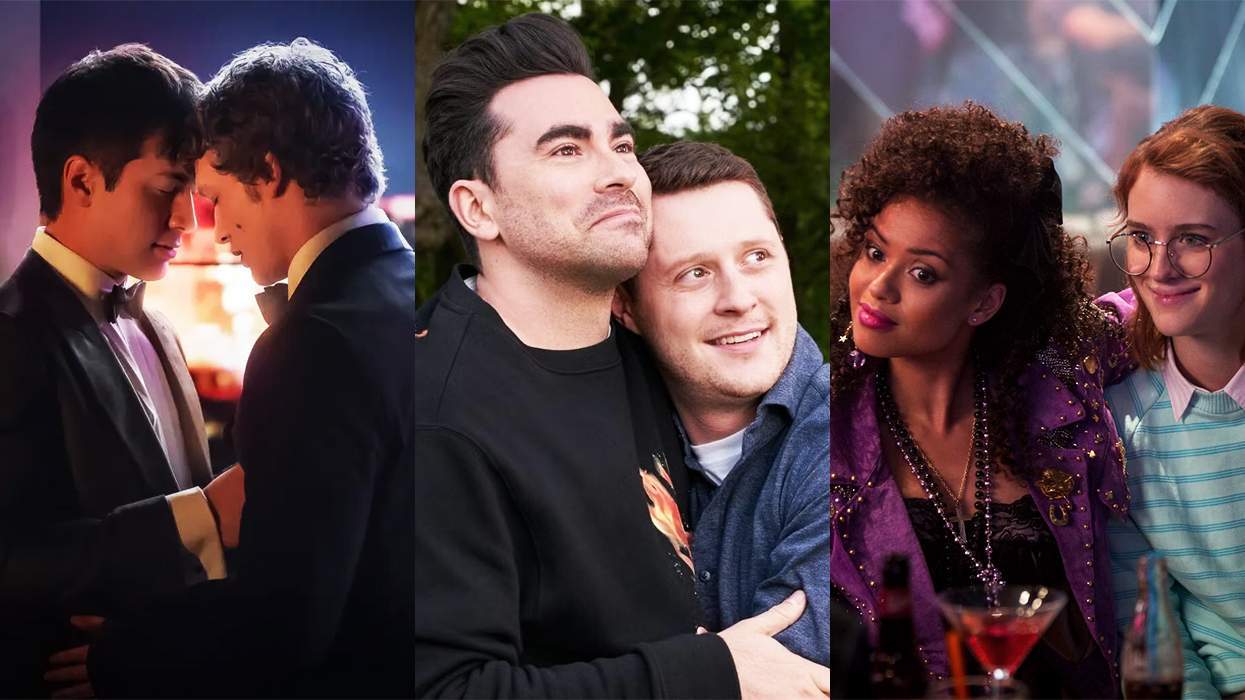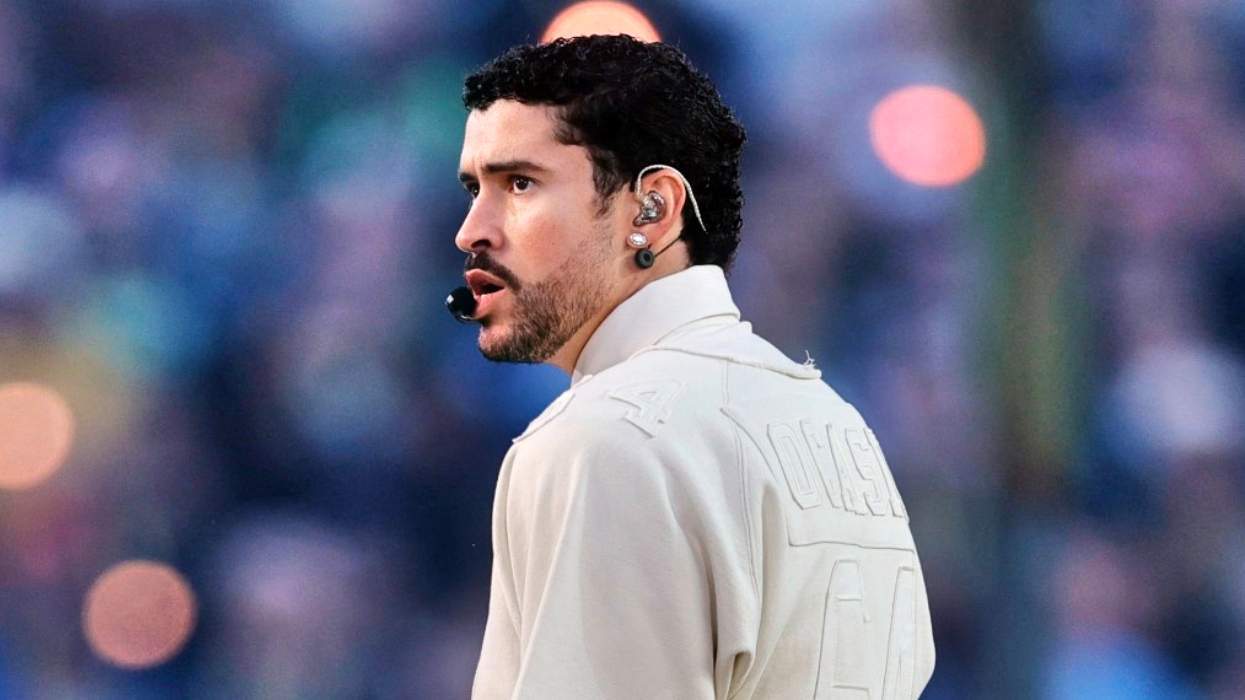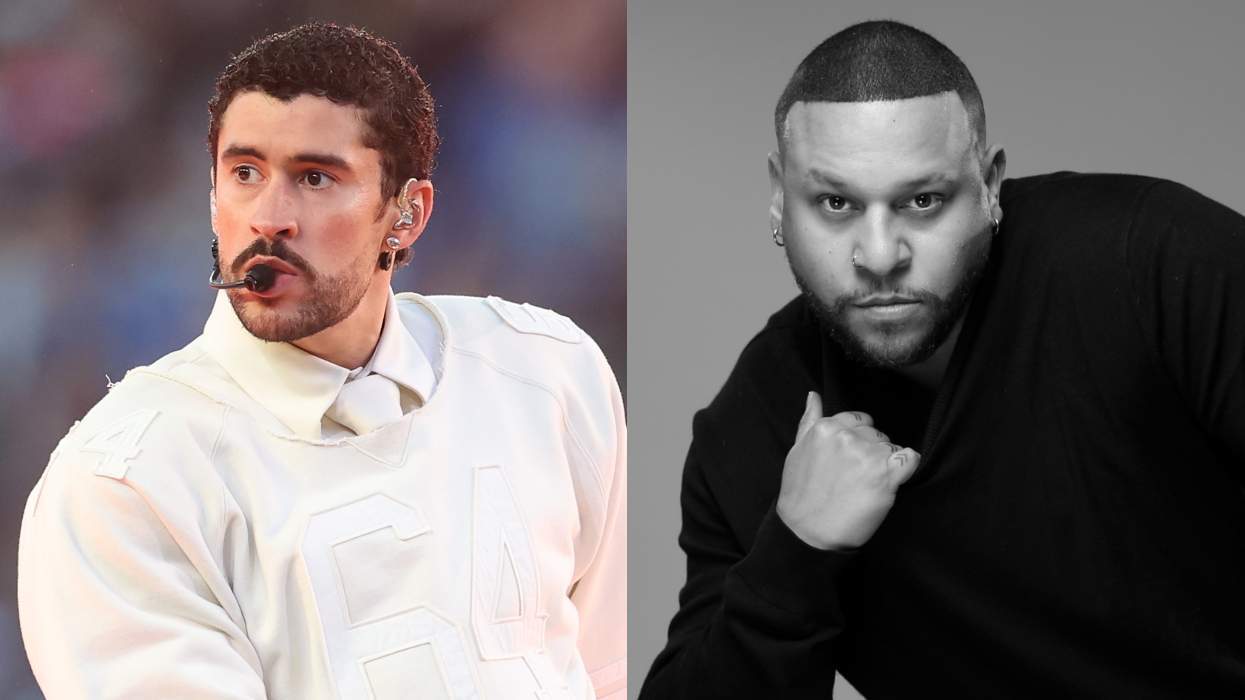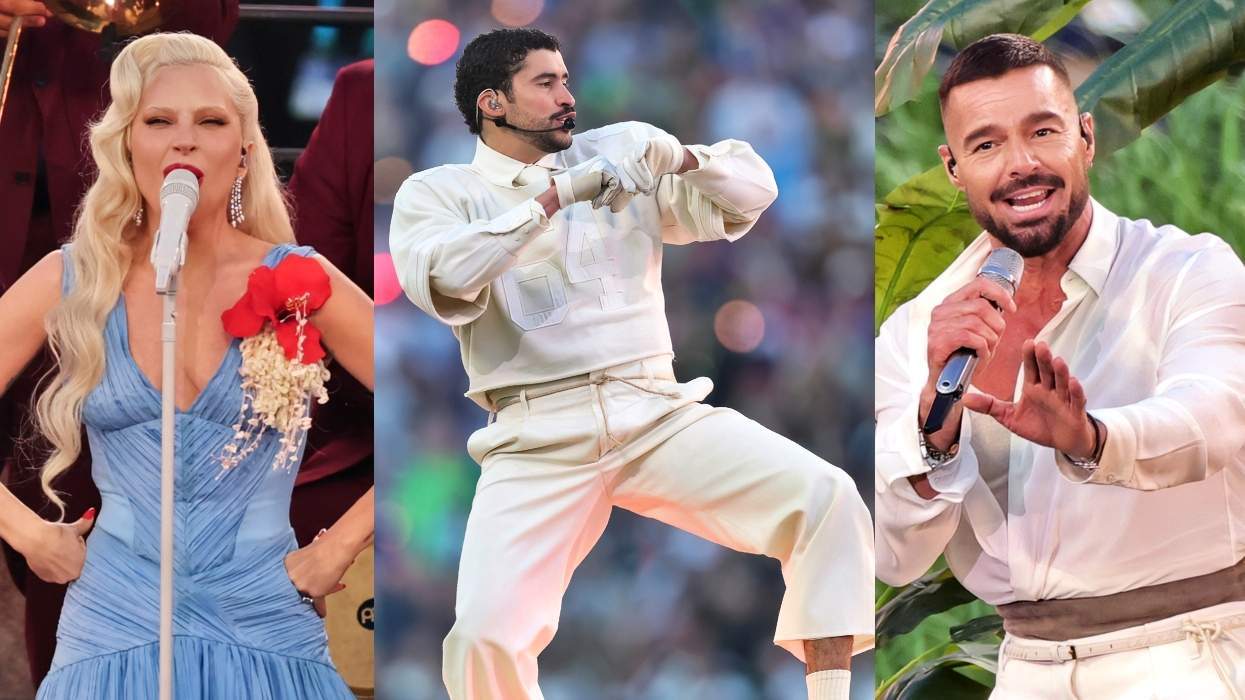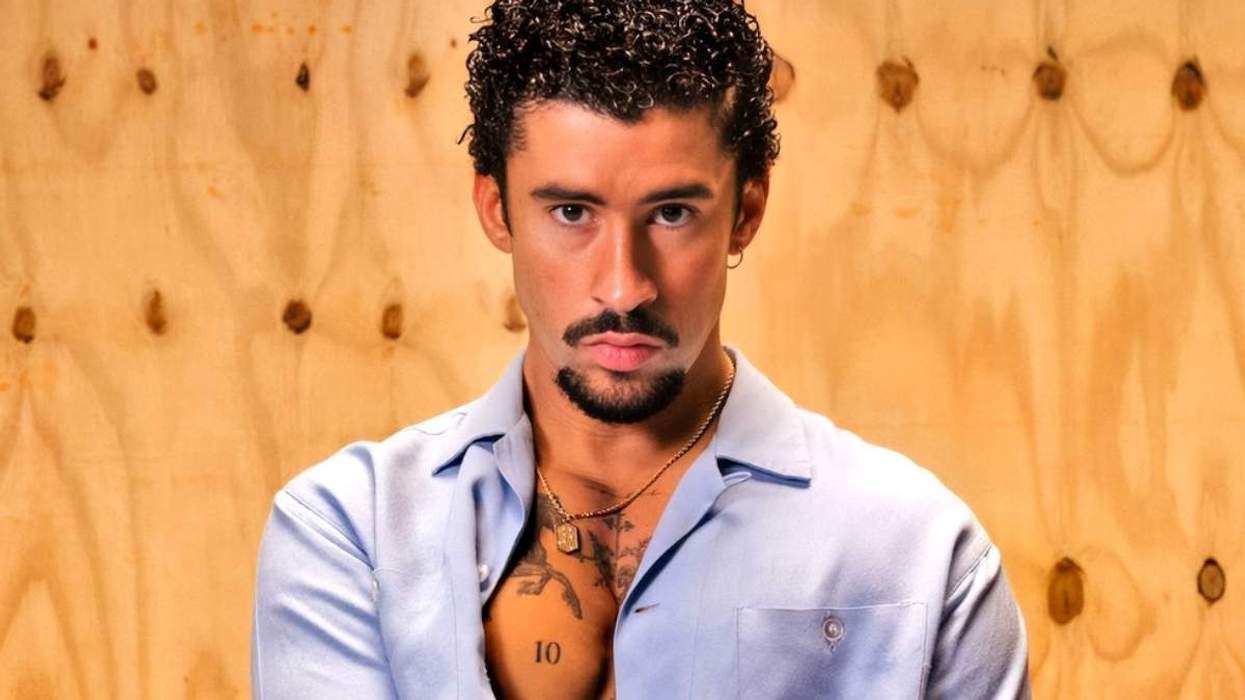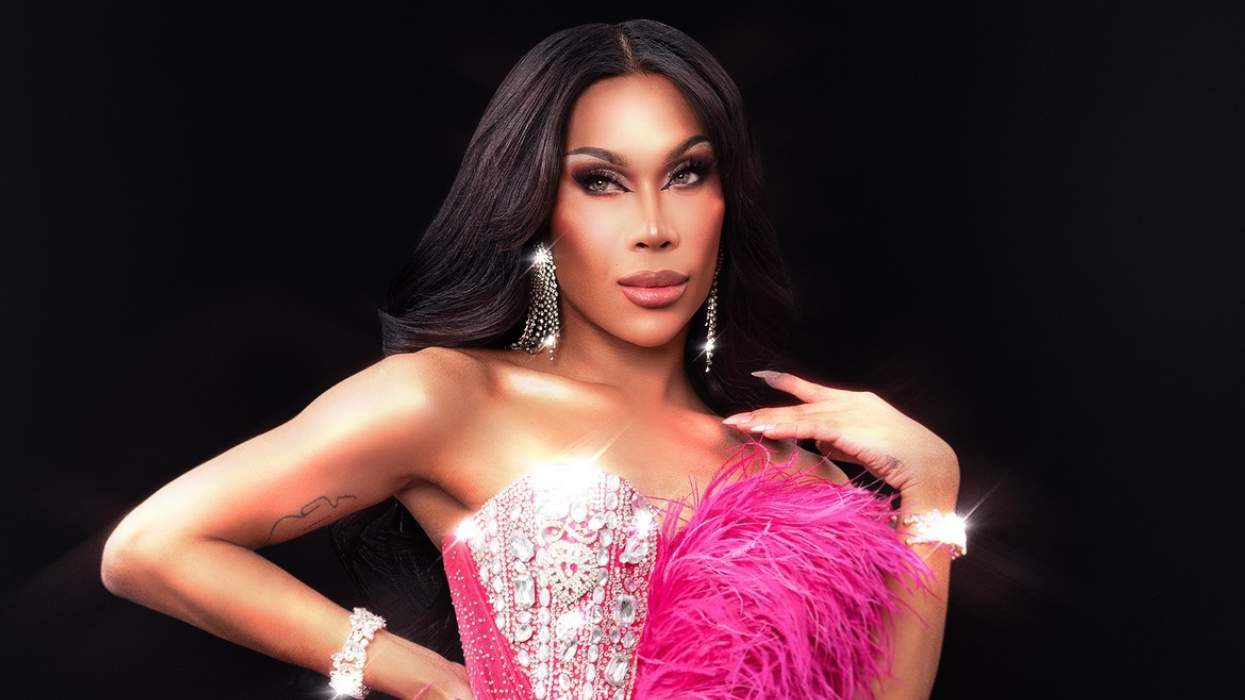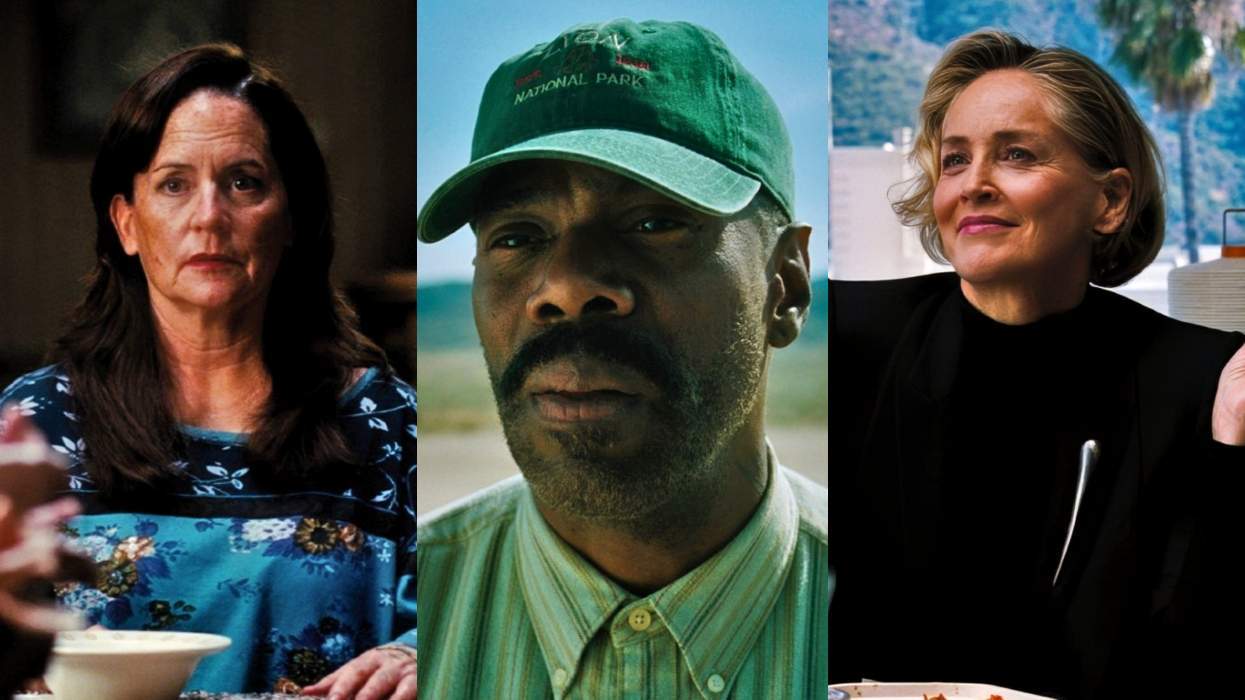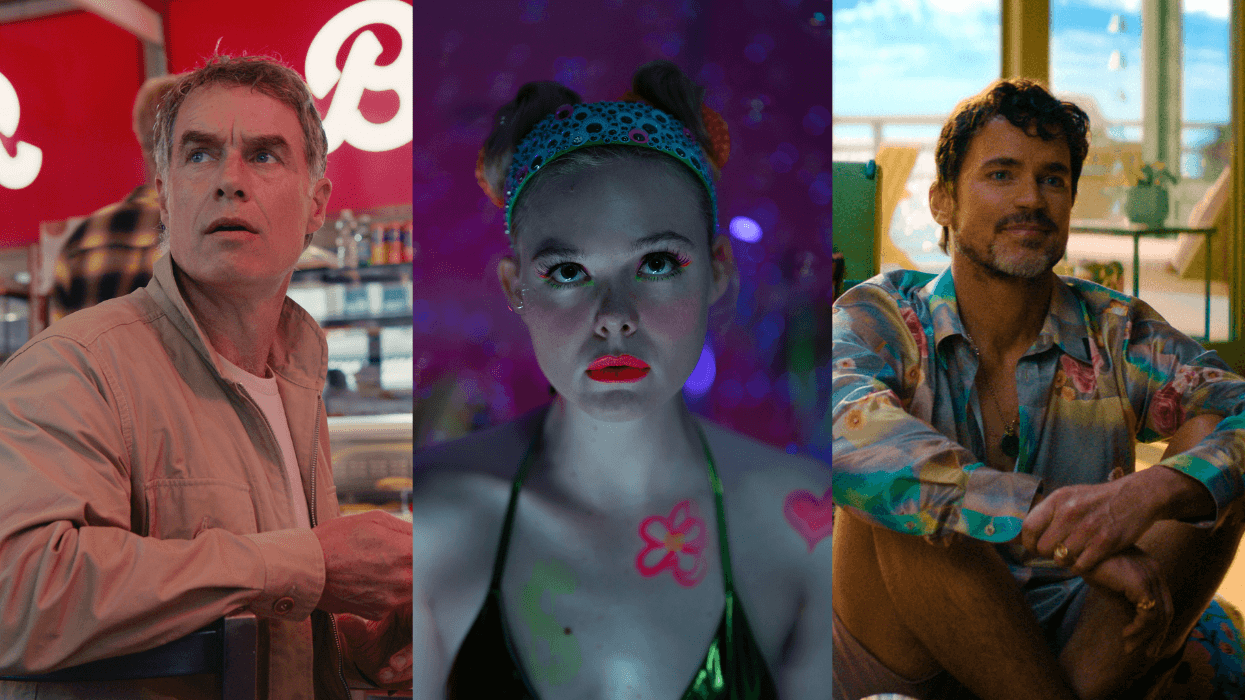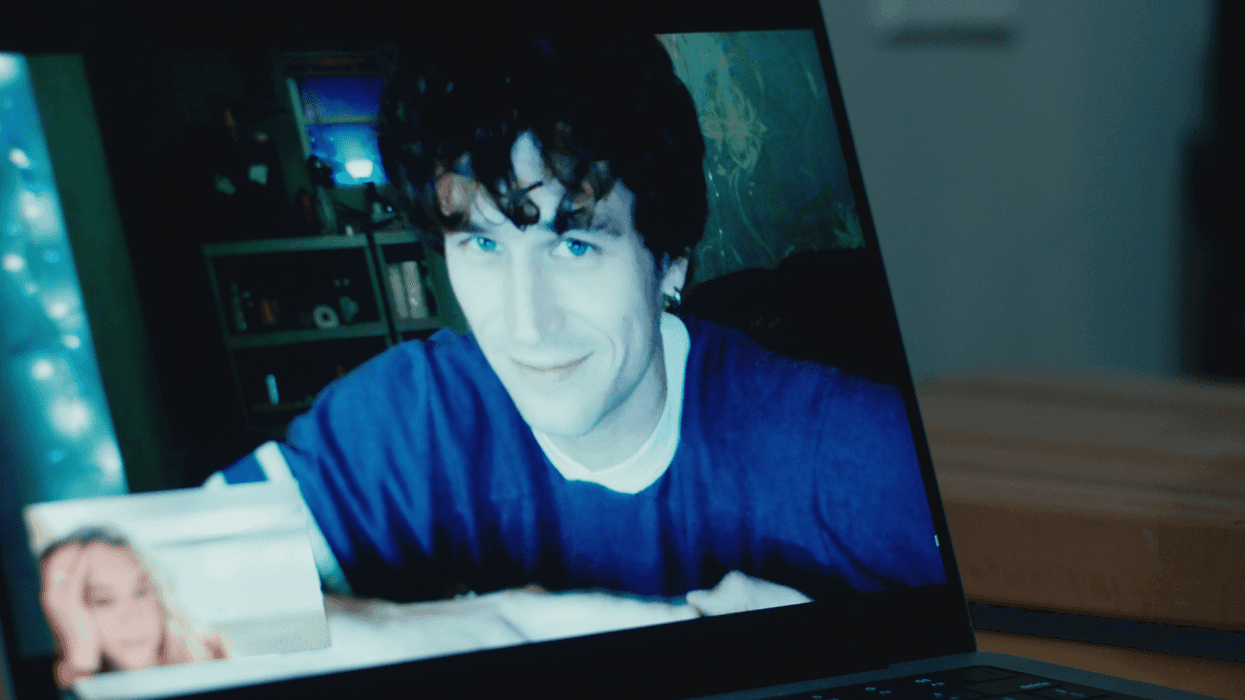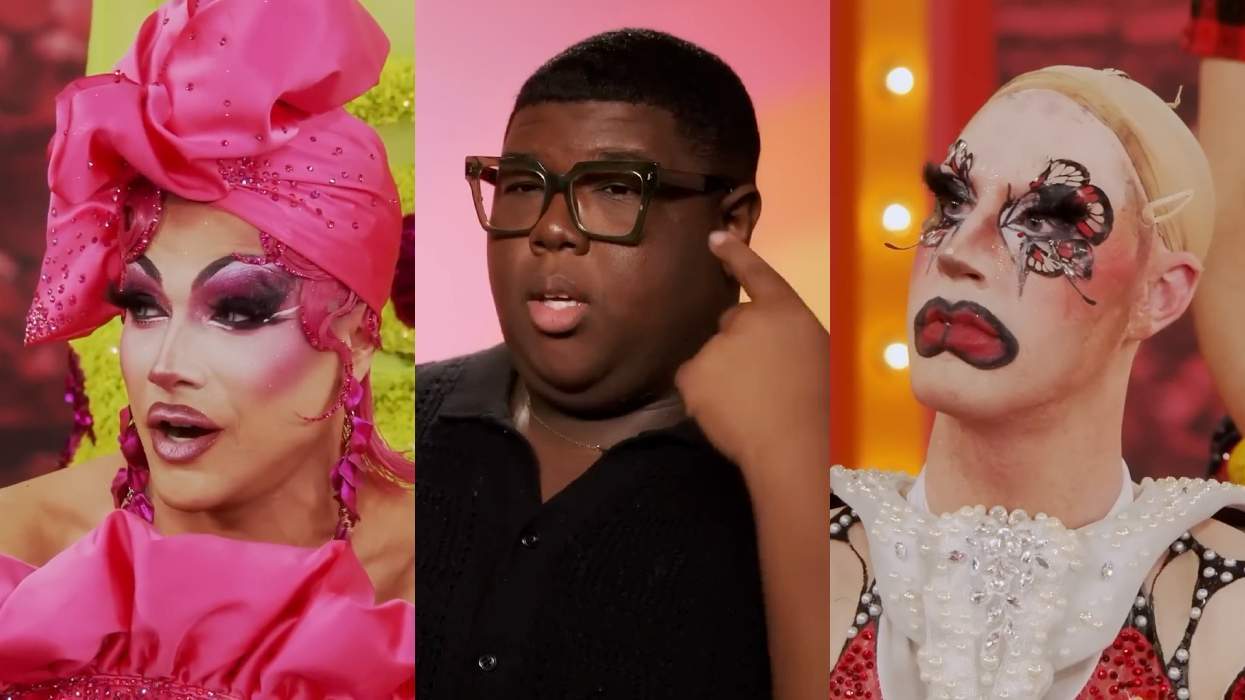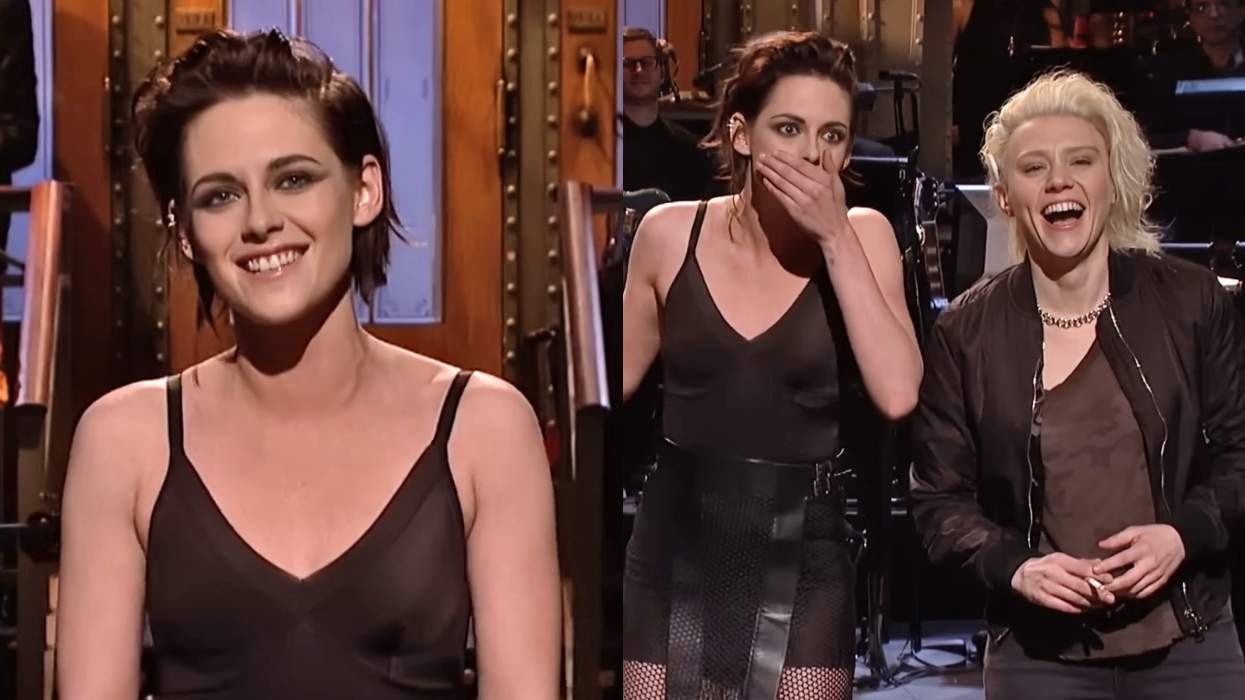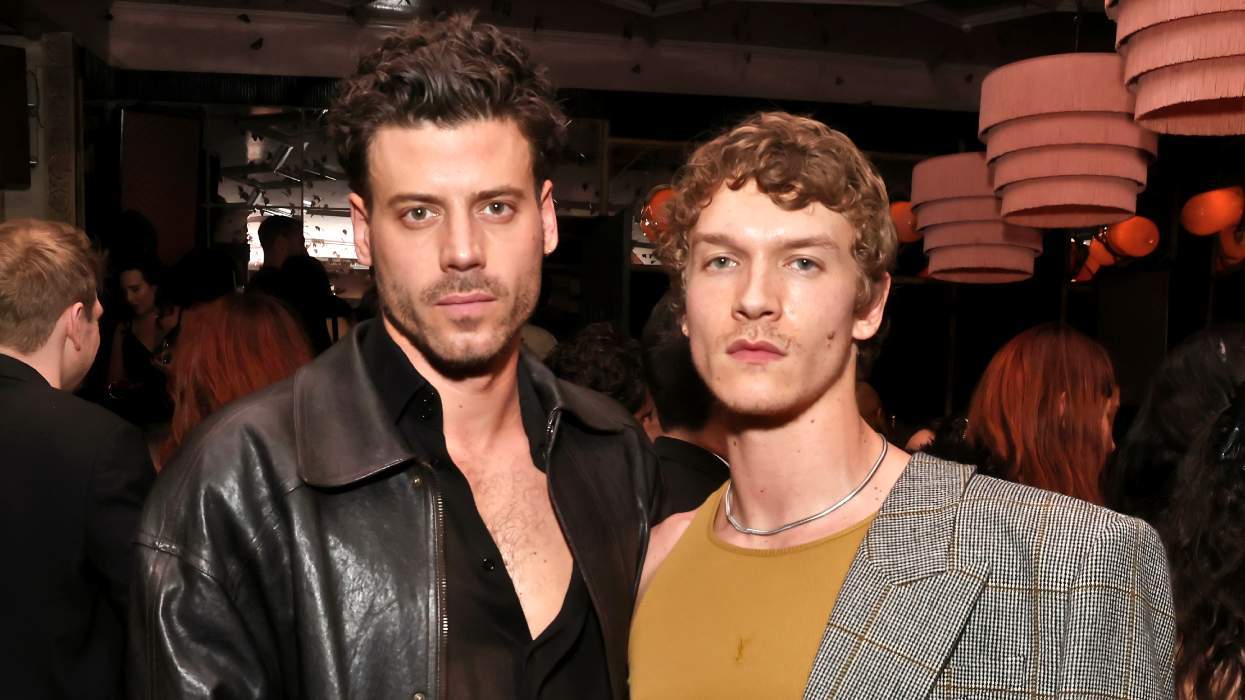Season two of Heartstopper is as wonderful, poignant, and captivating as the first season. But as these characters grow up, their relationships reach new levels while also facing new obstacles.
The returning cast of Heartstopper season two includes Kit Connor (Nick), Joe Locke (Charlie), Yasmin Finney (Elle), William Gao (Tao), Corinna Brown (Tara), Kizzy Edgell (Darcy), Tobie Donovan (Isaac), Sebastian Croft (Ben), Rhea Norwood (Imogen), Jenny Walser (Tori), and Olivia Colman (Sarah). New additions include Thibault de Montalembert (playing Nick’s father, Stéphane), Jack Barton (Nick’s brother, David), Leila Khan (Sahar Zahid), and Bradley Riches (James McEwan), among others.
In an interview with Out, Euros Lyn – who directed all episodes in seasons one and two of Heartstopper – breaks down how the relationships between these new and returning characters evolve, reveal themselves, or are challenged. The director also discusses directing a cast of mostly unknown actors in season one who came back as global superstars in season two. In addition, Lyn shares his personal experience growing up with anti-gay legislation in the UK and how he feels about the current state of LGBTQ+ rights being attacked in the US.
Scroll through to read our full interview with Heartstopper director Euros Lyn, and make sure to stream the series’ second season on Netflix.
Out: One of the high points of Heartstopper season two was the trip to Paris. Filming actually took place in the city and there were plenty of exterior scenes. What was it like to film this cast of actors who are now world-famous in the middle of a busy city like Paris?
Euros Lyn: When we shot season one, people would walk past in the street, and nobody would know them from Adam. But season two, that's not the case. We were shooting scenes in the middle of Paris with actors in costumes that we didn't really want to show the world, but it's impossible. There are Heartstopper fans everywhere. The minute we started shooting, there were pictures being posted online, and there was great excitement. So you sort of have to go, 'You know what? That's fine.' There are fans who love the show so much that this is a huge highlight, to get to see a scene being filmed. You have to kind of embrace it.
You directed all of the episodes in seasons one and two. From your perspective, how did these young actors evolve in terms of their personalities and their acting craft?
At the start of season one, Joe Locke, who plays Charlie, did his audition from his bedroom in his school uniform. He was still in high school, never shot a scene before, never been in front of the camera before. He came to shoot, to play the lead in a Netflix show, and had to learn on the job what the craft of acting for the screen is. And he did it brilliantly. He's such a talent, and he's so clever and a really smart guy.
But by the time we came to shoot season two, he'd been off doing other stuff, and now he had loads of screen craft. It made my job in season two so much easier because the basics of how do you hit how marks, what about continuity, how do you reveal something to the camera with it feeling hokey… he knew all that stuff. It's true about all of them, actually. They'd all been doing really exciting things, like plays in the theater, other shows on TV, other movies. So, season two was very different.
I think one of the things that was important for us as a production team was to make sure that everybody was equal and pitched in. That there wasn't any sense of people having changed, because now they're stars. I was really keen for that not to become a thing, and it wasn't. They're such a great ensemble of actors. They supported each other, and treated each other with respect, treated the crew with respect. So that made me very proud of them.
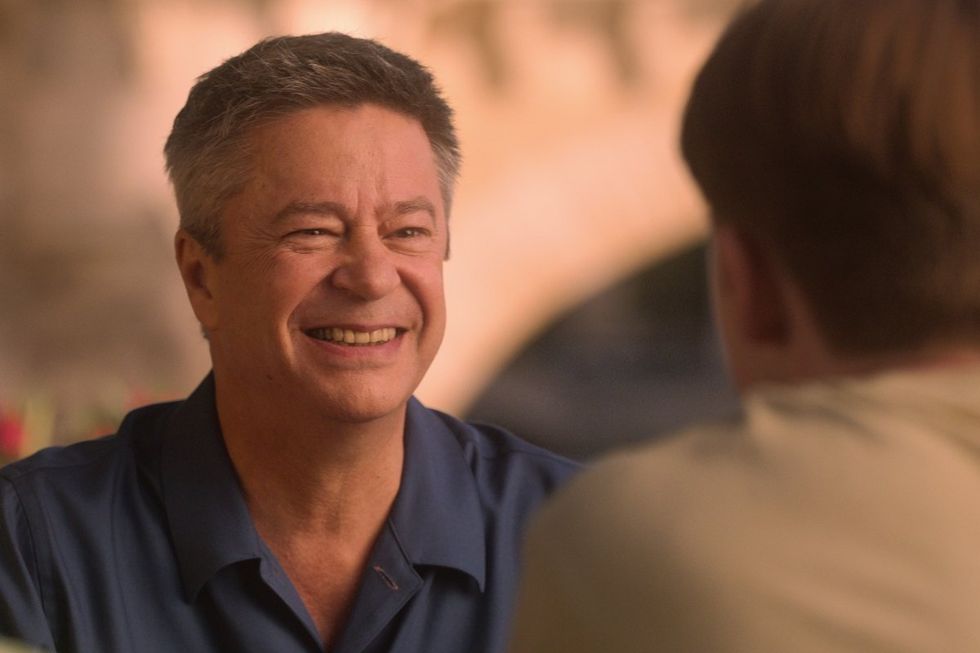
Netflix
We get to know Nick’s brother and father in season two. When he finally comes out to them, I found that his father’s reaction was somewhat mixed. How do you interpret Nick’s father’s reaction to him coming out as bisexual?
For me, one of the really exciting things is that there's a great drama in Nick revealing his sexuality to his father, but just as interesting is the accusation that his dad is a bad dad. That he's been absent, that he hasn't paid attention to Nick when he should have, that he doesn't really know who Nick is. Because he's just not there, and he's absent. I think that accusation to his father has as much weight as the revelation that he's bisexual. The father, Stéphane… He knows that his son is right, and he feels enormous guilt in that moment.
That's one of the exciting things about Alice's writing. There are always lots of things going on in the scene. Actually, in that scene, Stéphane is also sitting next to Sarah, his ex-wife, and you get a sense of their complicated marriage. He probably wasn't always the best husband, and she was slightly annoyed with him. So all this stuff is swirling about and I think makes for really interesting, complicated, nuanced drama.
We also explore Charlie’s eating disorder in this season, but Nick is technically the only person that knows what’s going on at this point. This is obviously a very important and delicate topic. Do you expect that Charlie’s eating disorder is going to be explored even further in season three?
In the graphic novels, that's definitely something that's delved into, so I imagine that Alice would want to do that. What's really interesting is the sense for Charlie that he's trying to control his world, that he's trying to exercise some level of control over something… over a world he has no control over. For him, that seems to be how he is in his relationship with food, but we also get a sense that an eating disorder isn't some abstract condition that exists outside the rest of your life.
It's part of his psyche and how he is, but it's also a consequence of the extreme bullying that he endured when he was first outed in school. You get a sense that his own self-worth and his self-esteem is connected to this experience that he went through. It's all a joined-up, complicated psychological representation of what we, as people, are like. Nobody comes out of a situation of stress, and conflict, and being bullied without it having some consequence on who we become.
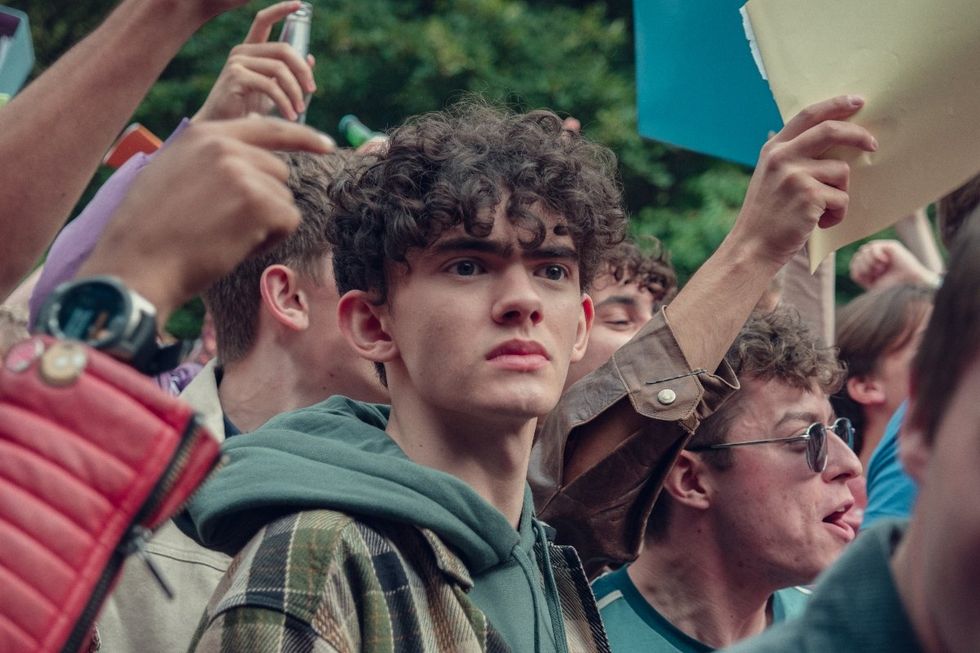
Netflix
Speaking of stress and bullying, there’s currently a vocal group of conservative homophobes that accuse just about any LGBTQ+ project of “grooming” children. Even Heartstopper, which is an incredibly sweet and wholesome show. What are your thoughts on that, and do you have any response to it?
I grew up in the UK in the 1980s when a law was passed, not dissimilar to what's happening in Florida at the moment, where teachers were being prevented and outlawed for 'promoting gay lifestyles.' That's what it was called in the UK. When I was growing up, that was the law, and there's no chance on earth that it made a blind bit of difference to whether I was gay or not. I was the person I was going to become, and what a teacher told me didn't make much difference.
But the consequence of it being outlawed was that I was ashamed of who I was, and I was unable to be true to myself. I lived, for many years, wanting to keep being gay a secret, and it made me very unhappy. When I think of these forces who are trying to stop gay people or queer people from expressing who they really are, it makes me so sad, because no good can come of it. People will be damaged. For me, as a gay person, it's very important to stand up for our rights and to push against it.
Heartstopper is a story about love. It's a story about falling in love for the first time, and drama can reach out across people's prejudices, across a divide, and allow us to empathize with a scenario that we've never imagined before. An audience, for the brief length of an episode of Heartstopper, can step into Nick and Charlie's shoes and discover what it's like to be them. I really hope that this show can bring some good to the world and that people will suddenly understand, 'Oh, this is what it's like to be trans. This is what it's like to be gay.' I hope it will bring some enlightenment to some of these darker forces that are at work at the moment.
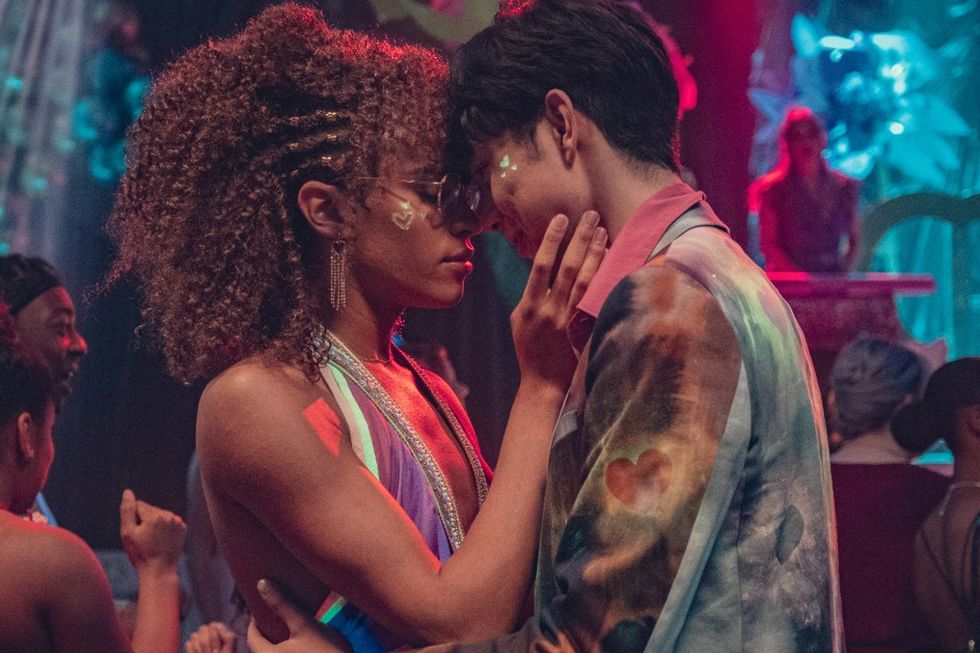
Netflix
Elle and Tao finally get into a relationship over the course of Heartstopper season two, but Elle has other big aspirations in her life. How do you think their relationship stands by the end of this season?
It's so much fun to have a pair of friends who are brilliant mates but then realize that, actually, there's more than just friendship going on, and that there's a sexual attraction there, and there's a possibility of a romantic relationship. How do you transition from that one state of mates into another? Because you're risking everything, right? You're risking your friendship. The stakes are really high, because it's not just their friendship. It's the whole group. Everybody spins around Tao and Elle. So that's a really fun story to tell.
They're such brilliant actors, Will and Yaz. There's this fantastic sequence I'm so pleased of in episode three when they go to watch a movie together. The awkwardness of their first date is unbearable, because you're just watching these two people wanting to hold hands, but they're afraid to. Then, they do, and then it's the wrong thing. It's excruciating. By the end of season two, I think Tao's grown up, and we get a sense of them both being in a really good place with one another. He's not paranoid that she's going to go away and leave him, although I'm sure that that feeling will never stop for Tao. I've got great hopes for them both.
We always saw Tara and Darcy as characters who had it all figured out and were very open about their lives, but we learn a lot more about Darcy’s home life in this season. Do you think Darcy’s relationship with her mom is something that can still be managed and fixed, or was her running away a point-of-no-return for the character?
That's a really interesting question, because I think when you're a teenager running away from home, there's a huge amount that you sacrifice in doing that… like the safety of home, despite her mother's relationship. [Darcy's] relationship with her mother is toxic. Her mother is cruel, and bullying, and homophobic. But nevertheless, that's her home. I think she's given up a lot in order to gain her freedom at the end of the season. I imagine there'd be some really interesting story for her going forward. But I think the tension for Tara is that she just doesn't know, because Darcy hasn't shared any of this for her.
The breakthrough in their relationship is that Darcy comes clean, and she says, 'You know what? The person I was pretending to be, the person I am in school, is not the person I am at home.' Darcy feels shame for that, but Tara says, 'I don't care. I love you. I love this person that you've just revealed to me now as much as I love the person that I thought you were before.' That liberates Darcy, and we get a sense of the two of them together. So much in love at the end of season two. It's a really joyous sequence, and we've got Taylor Swift as the soundtrack for that scene, which made me really happy.





